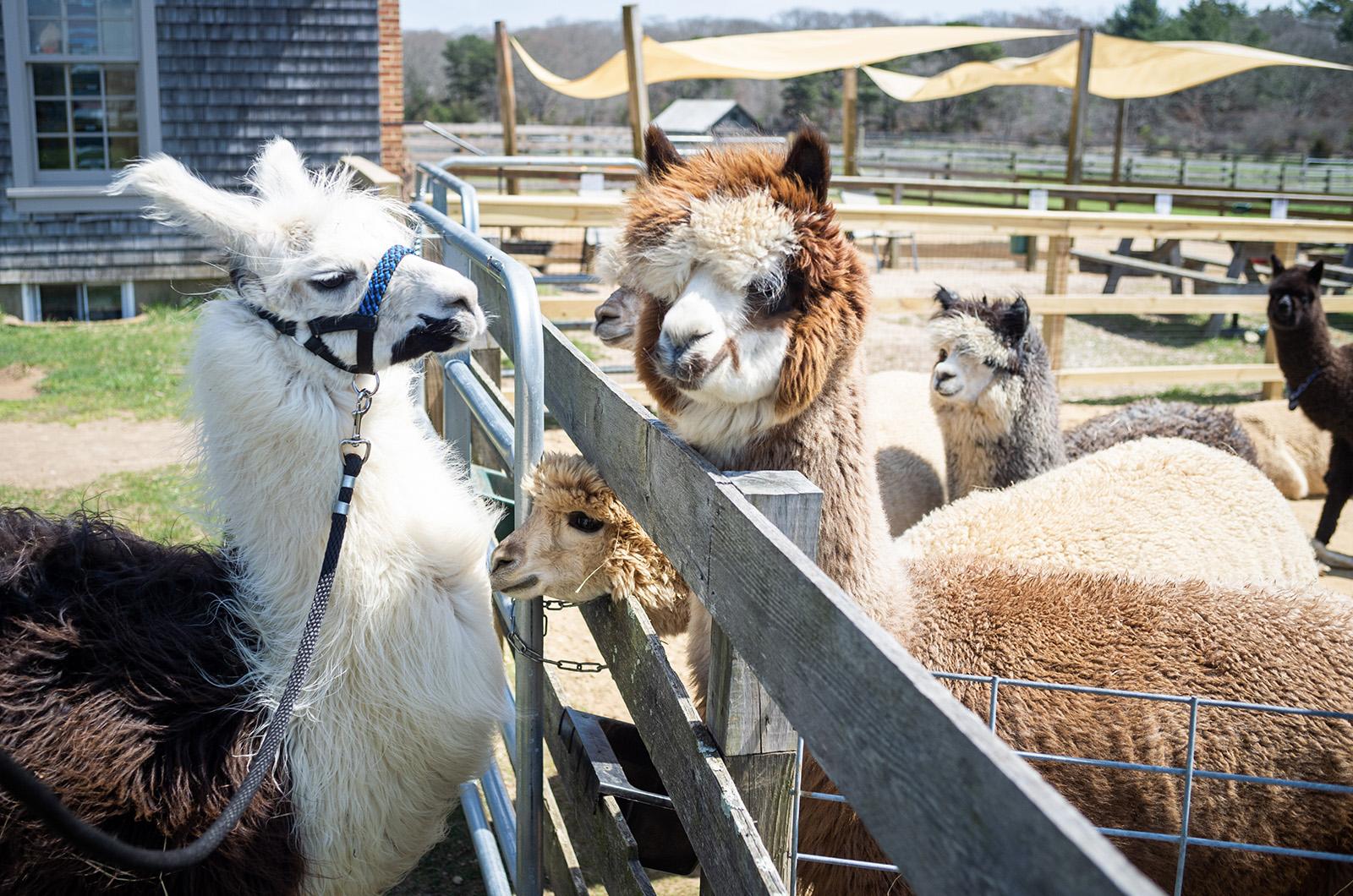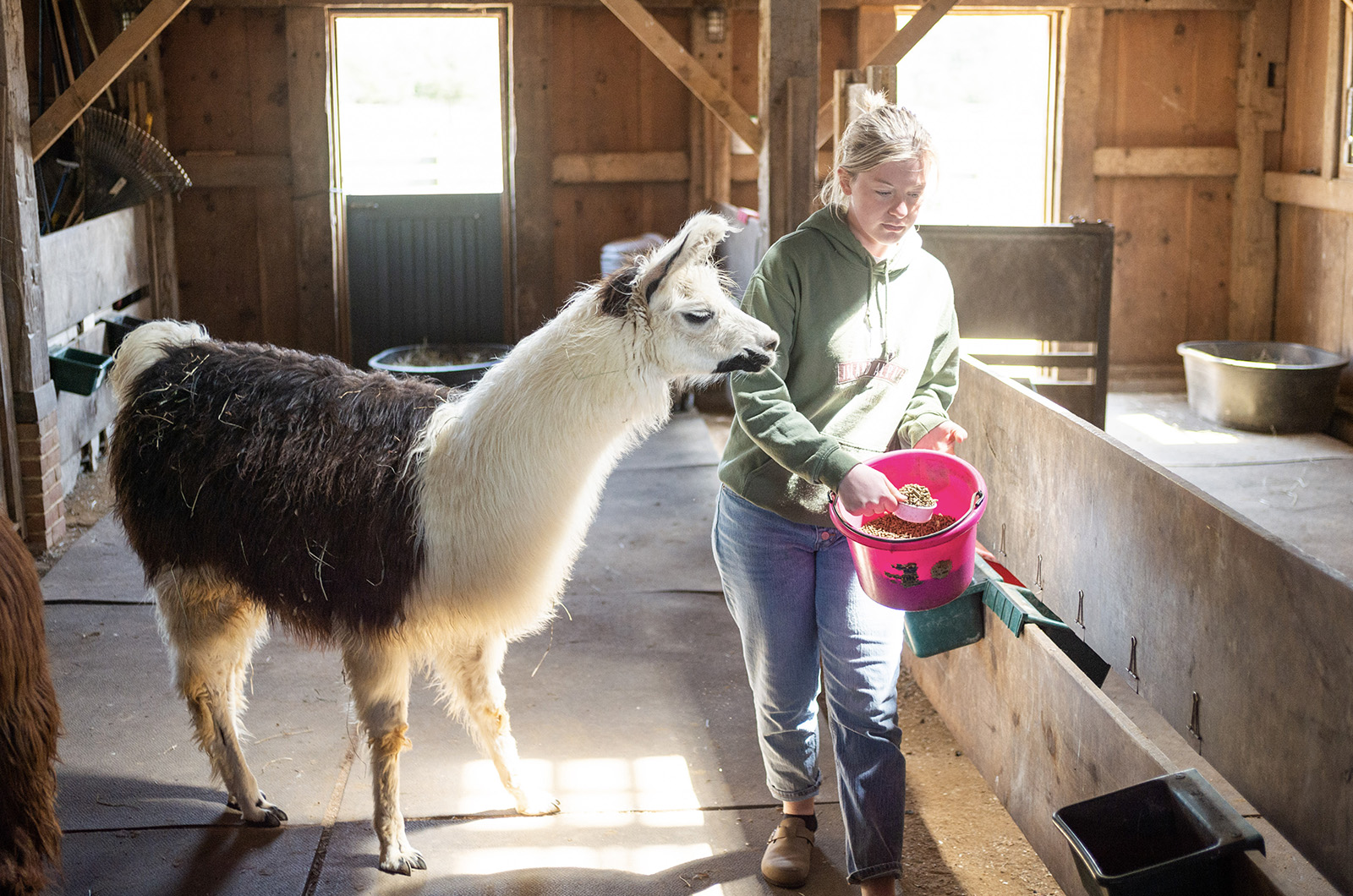Two new residents arrived at the Island Alpaca Company in Oak Bluffs earlier this month. The additions resemble the 31 alpacas on the farm but are taller, with longer snouts and pointier ears, defining them as llamas and the new protectors of the herd.
The llamas, unofficially named Poppy and Spring, arrived on April 7 after a long roadtrip from a breeding farm in Pennsylvania. They were recruited by Island Alpaca owner Barbara Ronchetti who is hoping they will help protect the alpaca herd against the Island’s coyote population.
Guarding is in llamas nature, explained farm manager Lexi Hughes. They quickly become territorial and protective over any livestock they live with.
“There was one [coyote] sighting over here on Deer Run and that kind of scared me a bit,” said Ms. Hughes. “We’ve never seen them on the property but of course we’re not here 24/7.”
Llamas have not lived on the alpaca farm for nearly a decade. The previous residents were used to show visitors the differences between the two species. But now that the farm workers are more concerned about predators, the teaching opportunity is just an additional benefit.
At 15 years old, Poppy is the older of the two and is already an established protector, walking the farm fence line and keeping and eye out for intruders.
“She’ll let off an alarm call when she sees something to tell everyone ‘hey pay attention,’” said Ms. Hughes. “If that predator is coming in or anything she will go toward it. She’s not afraid.”
Spring is only one year old and hasn’t quite mastered the art of herd protection. Right now, she’s mostly interested in lounging and playing,
“She was trying to play with the alpaca babies but they are still like ‘um we don’t know you yet,’” said Ms. Hughes.
Next year, the farm is hoping to welcome more llamas and breed either Spring or Poppy, although finding even two llamas was more difficult than anticipated. In a press release, Ms. Ronchetti stated that the United States llama population has declined significantly over the past two decades and she was unable to locate any in New England.
Once Ms. Ronchetti secured the pair after a long search, she surprised her employees with their arrival.
Ms. Hughes, who has been working on the farm for nearly eight years, says that she and her coworkers haven’t had to learn anything new to care for the llamas.
“Everything is pretty much exactly the same,” she said. “It’s all the same medications and toenail routines.”
The only difference will be how the fleece is treated after the llamas are sheared with the rest of the herd on April 29. Llama fleece is much coarser than alpaca fleece so it will be blended with other wool to soften it for clothing and other products.
Ms. Hughes said that although the farm has not encountered any predators yet, the llama security guards are comforting, and the two new personalities on the farm are already drawing attention from visitors. Spring, Poppy and the rest of the herd can be visited any day of the week between 10 a.m. and 4 p.m.










Comments (1)
Comments
Comment policy »